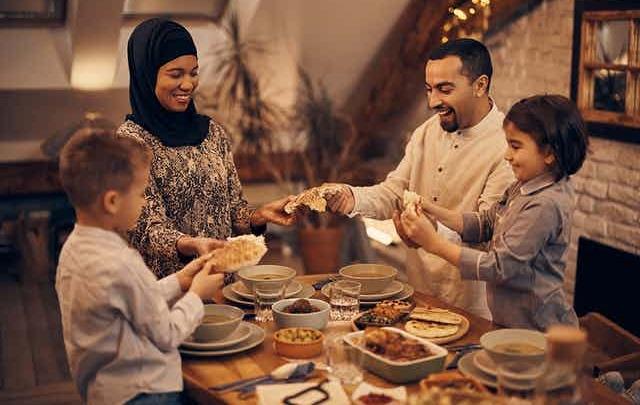
Easter and Eid al-Fitr
The biggest religious holidays celebrated by the people in our country are Easter and Eid al-Fitr.
Easter is the most important religious holiday in the Orthodox calendar and immediately after Christmas considered the most joyous Christian holiday. Christian believers with this holiday celebrate the resurrection of Lord Jesus Christ after his death with crucifixion around AD 33.
 Preparations for Easter begin with the Great Lent, which lasts 40 days and precedes the holiday. The most significant days are immediately before the holiday, namely: Great Thursday and Great Friday.
Preparations for Easter begin with the Great Lent, which lasts 40 days and precedes the holiday. The most significant days are immediately before the holiday, namely: Great Thursday and Great Friday.
On Maundy Thursday in every home, before sunrise, the first three red eggs are dyed.
The first egg is dedicated to God, the second to the host of the house, and the third to fertility and happiness.
It is believed that this custom originated from Mary Magdalene, who, according to the Bible, took eggs dyed red in front of the then-Roman emperor Tiberius when it became known that Christ had resurrected.
Great Friday is the day of strict fasting. The proper fasting is to drink only liquids. On that day, Jesus was crucified. Christians at that time fasted out of mourning. Because eating represented pleasure, they thought they should not eat. Good Friday is the saddest day for all Christians in the world.
On Holy Saturday, Jesus had already died. Then, in the evening, people go to church, and around midnight they form a circle walking around the church, and then the red eggs are broken.
 Sunday is Easter day. On that day you start eating fatty foods. On that day, Jesus
Sunday is Easter day. On that day you start eating fatty foods. On that day, Jesus
resurrected. On Easter, Easter Monday, and the Tuesday following it, Orthodox Christians in the world greet Christ Risen and respond with Truth Risen.
For our city of Tetovo, it is specific in terms of the celebration of this holiday that on Good Friday believers (mostly women) visit three churches in the afternoon, they light candles, carry red-dyed eggs, and make offerings to Jesus Christ’s death bed. It is also specific to Tetovo that on the holiday itself, men and children (dressed in new clothes) pick up guests and visit the homes of their relatives and friends, while women stay at home, welcoming guests with a rich meal and sending them off with Easter food an egg. This is not the case with other cities in the country, it is believed that this tradition has emerged from the Muslim tradition of visiting relatives on Eid, which has its roots in Ottoman times.
Eid al-Fitr is one of the two major Islamic holidays of the year. Eid al-Fitr lasts for 3 days one after the other starting from the first day of the month of Shawwal, i.e. the tenth month according to the Arabic calendar.
 The celebration begins right after the end of fasting, which marks the end of the month of Ramadan, in which Muslims fast, i.e. do not eat or drink anything from sunrise until sunset. Fasting should be mental and psychic.
The celebration begins right after the end of fasting, which marks the end of the month of Ramadan, in which Muslims fast, i.e. do not eat or drink anything from sunrise until sunset. Fasting should be mental and psychic.
It is believed that during this month of fasting, a man stands on his own feet, and remembers who he is, and what he should be. Ramadan-Eid is a day when the power of the rich with the weakness of the poor is in love, mercy, and justice. Muslims believe that Ramadan brings gifts to every home – mercy, blessings, and forgiveness.
Muslim believers start this day with morning prayer in a mosque. Then, it is the custom to go to cemeteries to visit the graves of ancestors and relatives. When the whole family will gather at home, the mutual congratulations on Eid start. It is the custom the holiday is first congratulated to the oldest and then to the others. After congratulating the circle of family, husbands, and children go to congratulate relatives and friends. Diverse traditional dishes, among which baklava takes the main role on the table in all homes the believers.
This year, both holidays were celebrated during the month of April: Orthodox Easter on April 16 and Eid on April 21.
Our city of Tetovo as a multi-ethnic and multi-religious environment allows us to parallel we also teach them to see the customs that are practiced and the ways in which both are celebrated holidays. On Easter, a must for our Muslim neighbors and friends religion, we give them Easter eggs, and they serve us baklava and other traditional sweets.
Diversity is a treasure, and our city allows us to experience it.
Happy Holidays!




